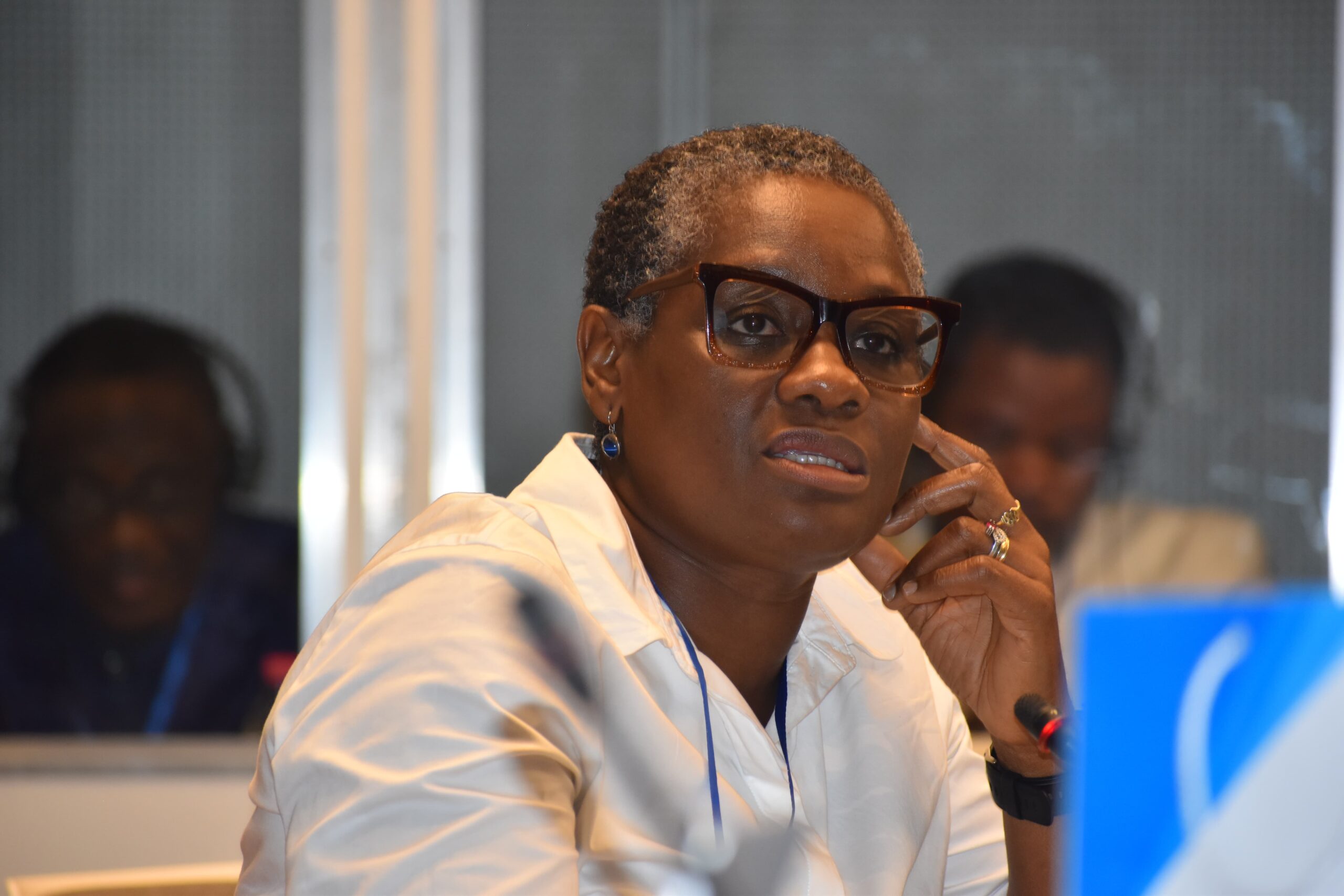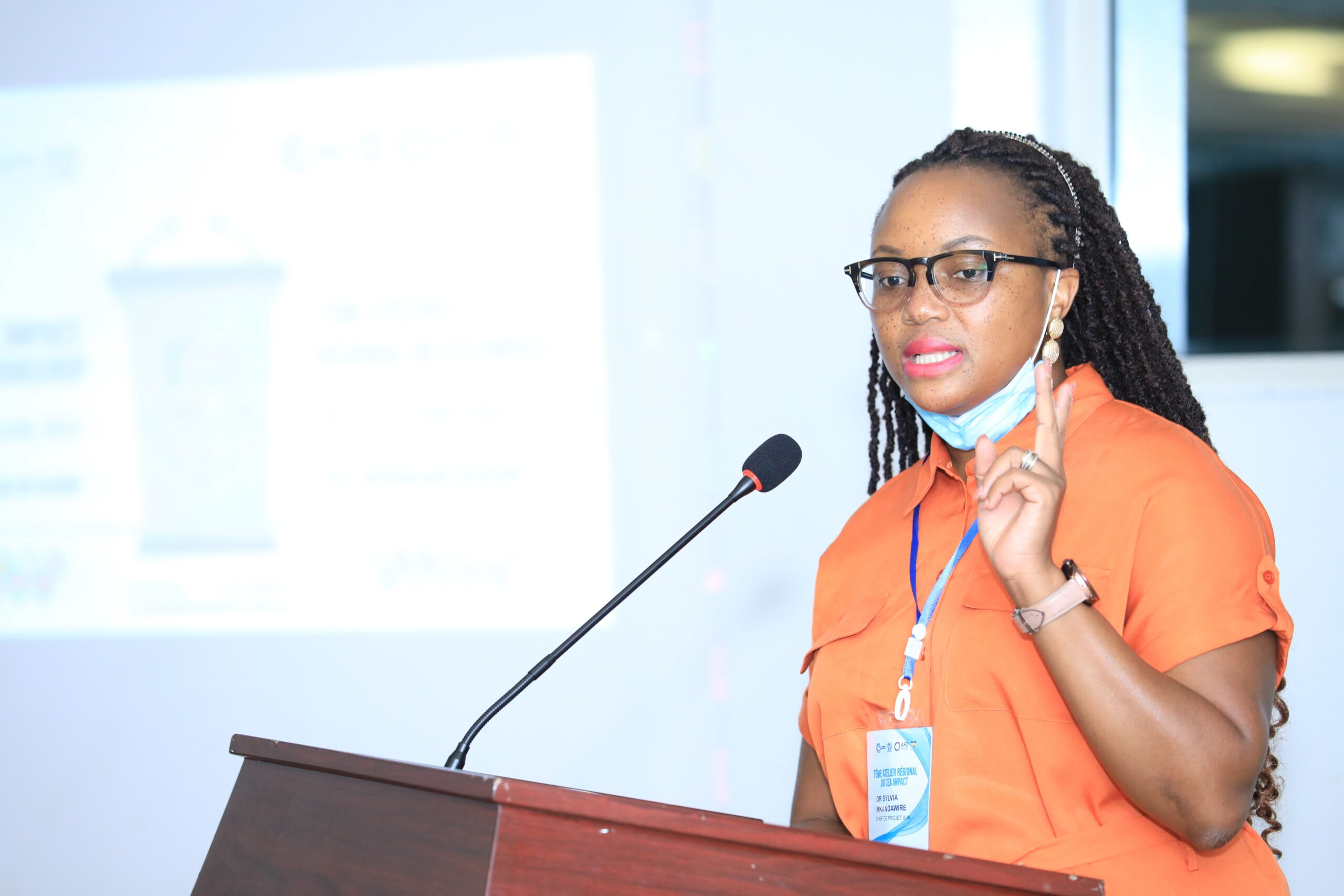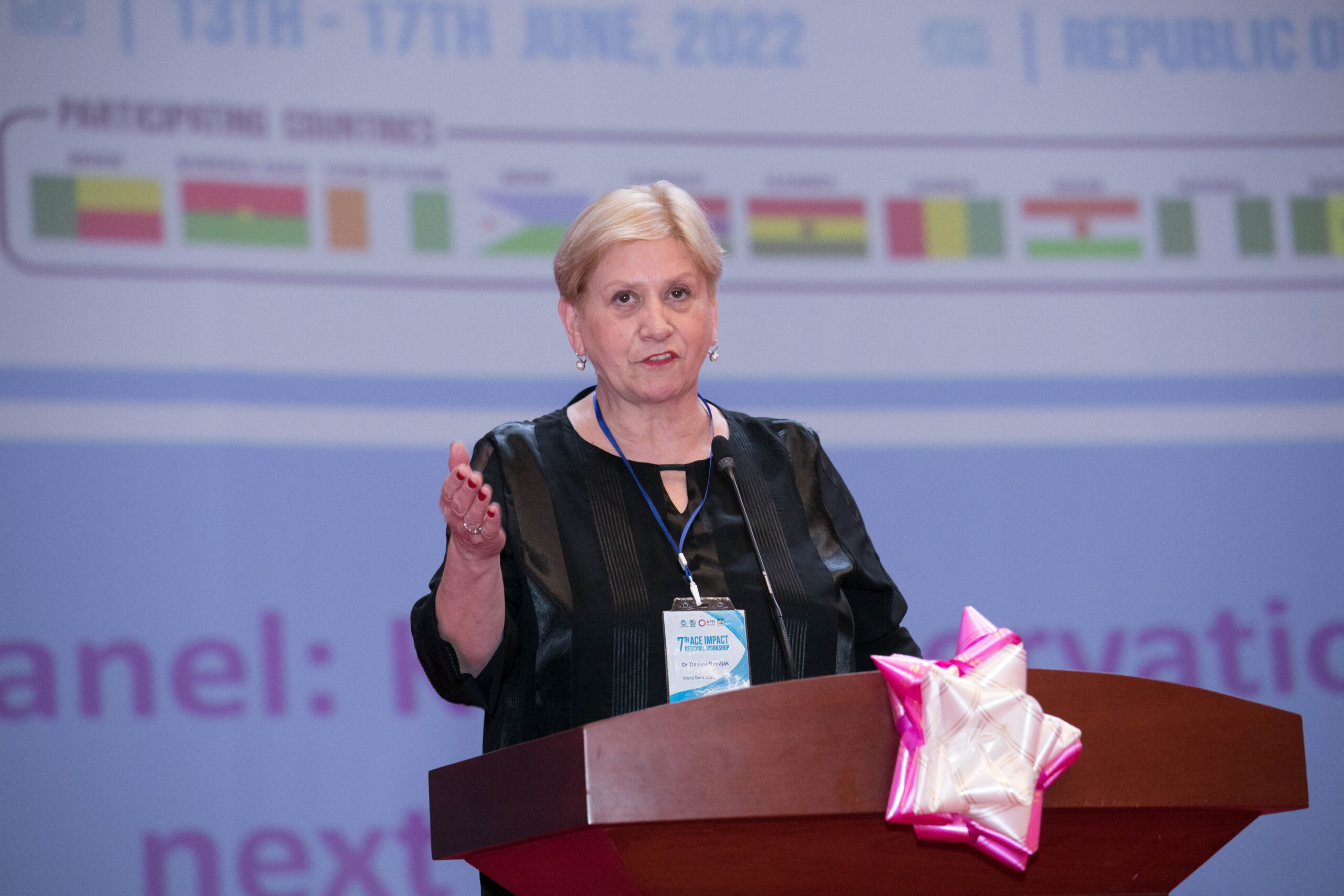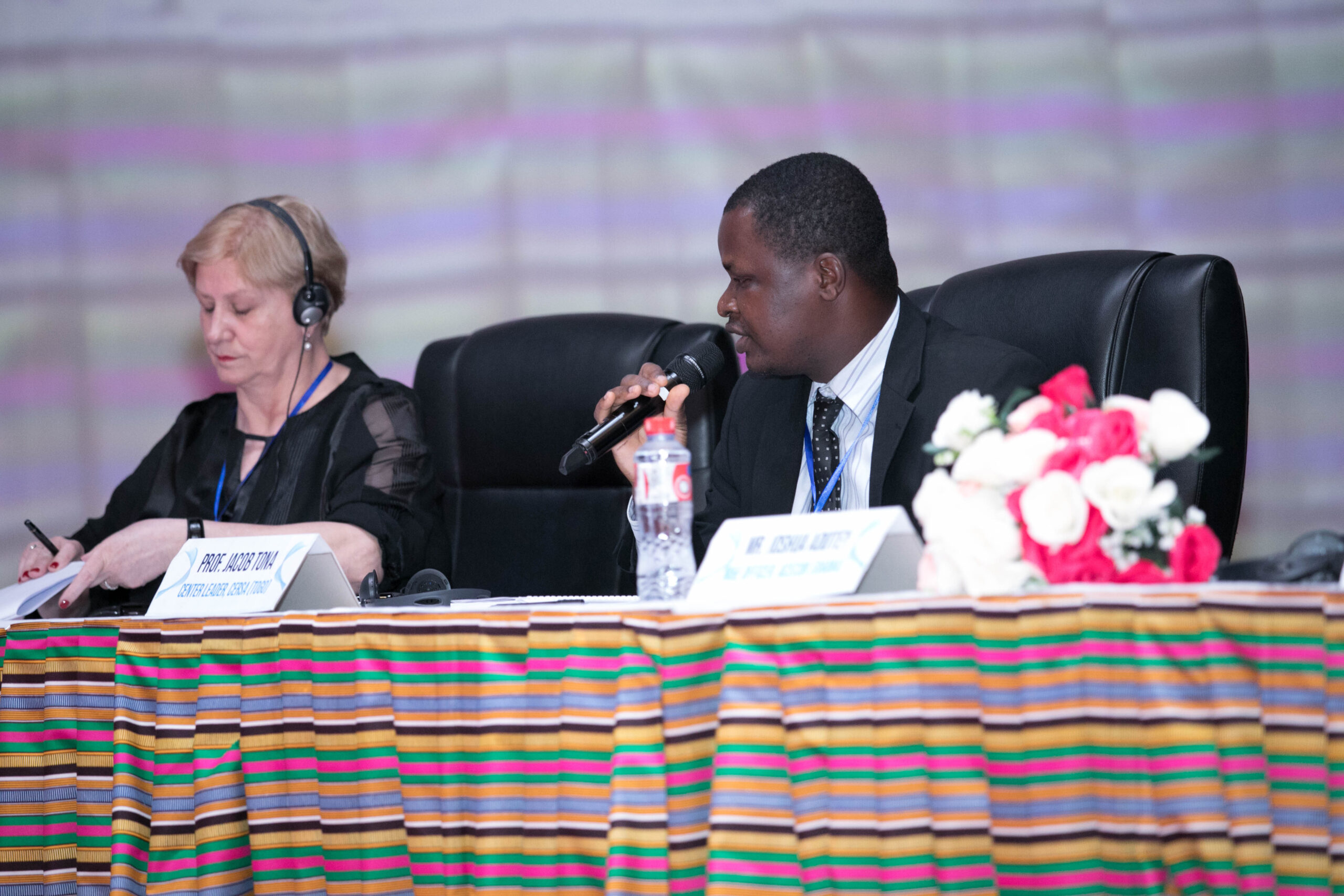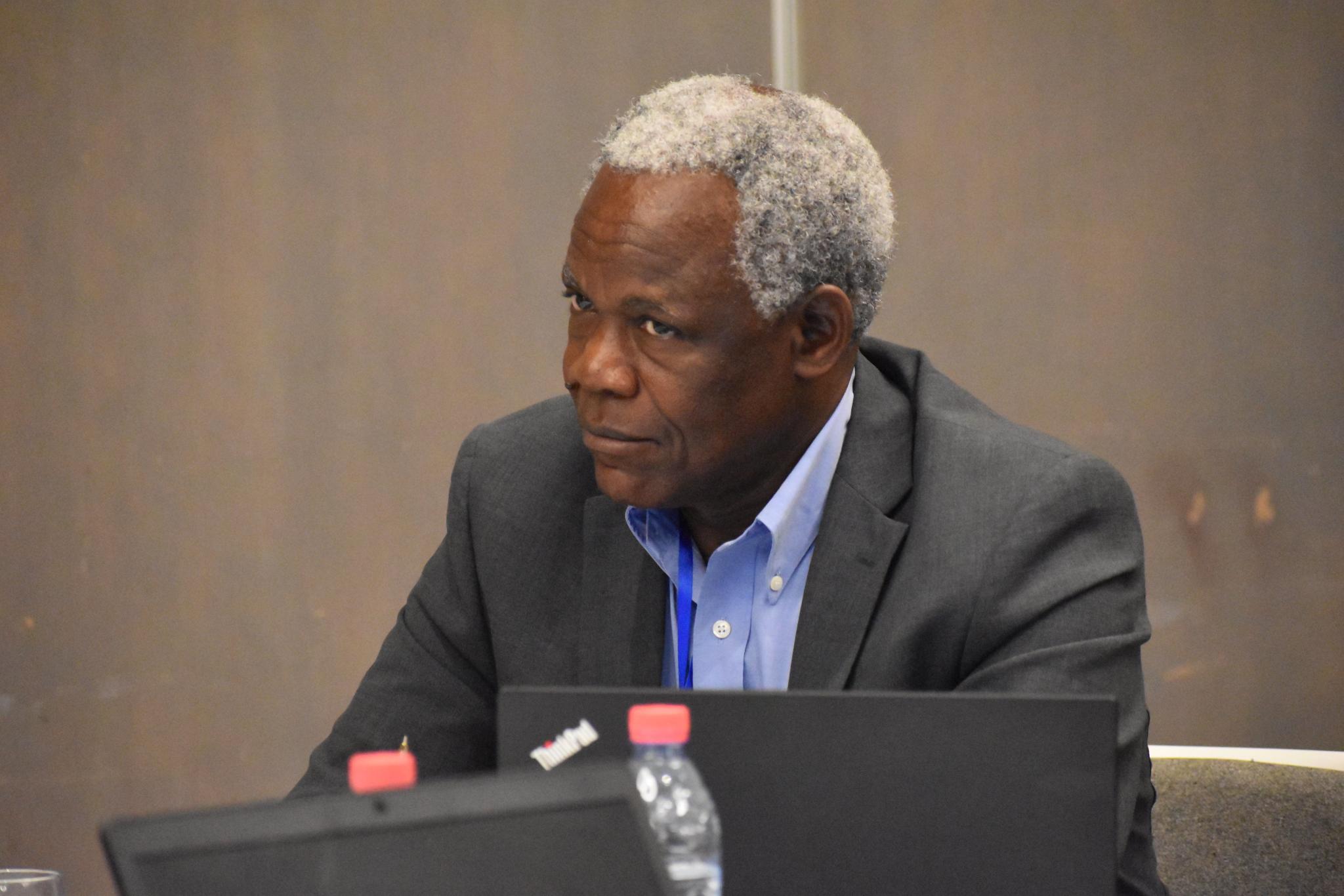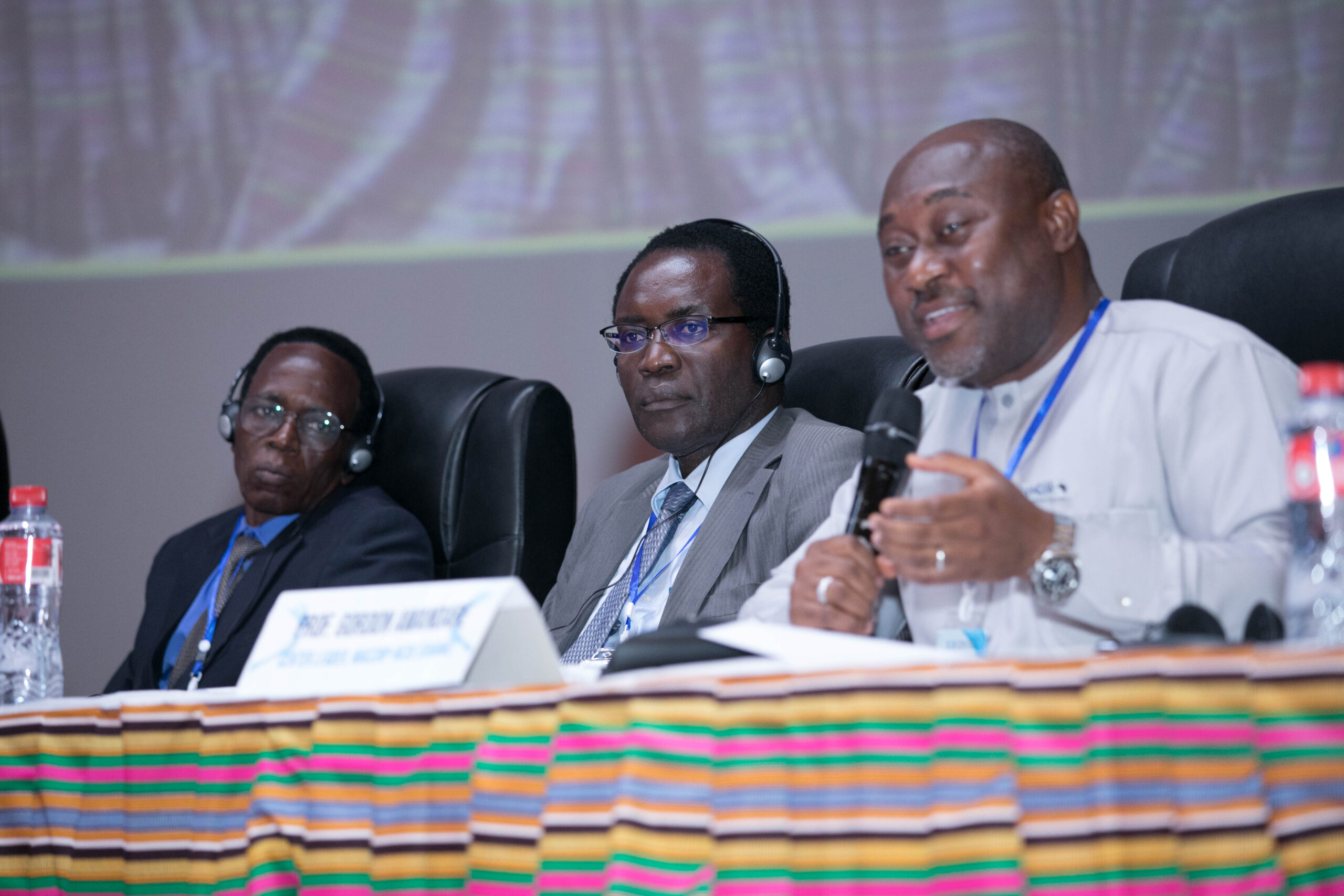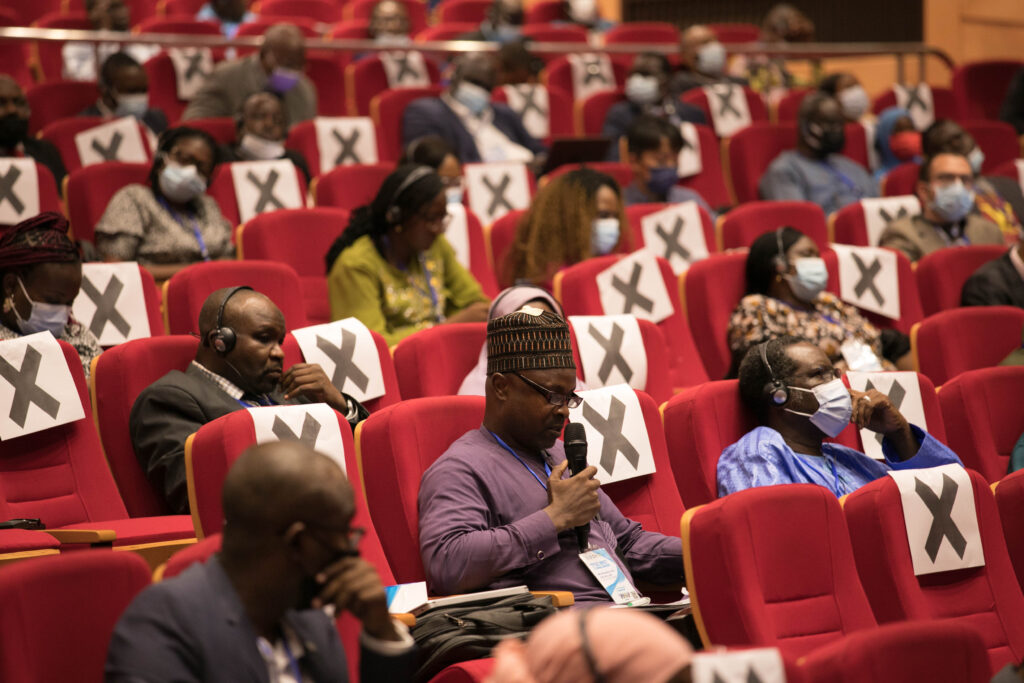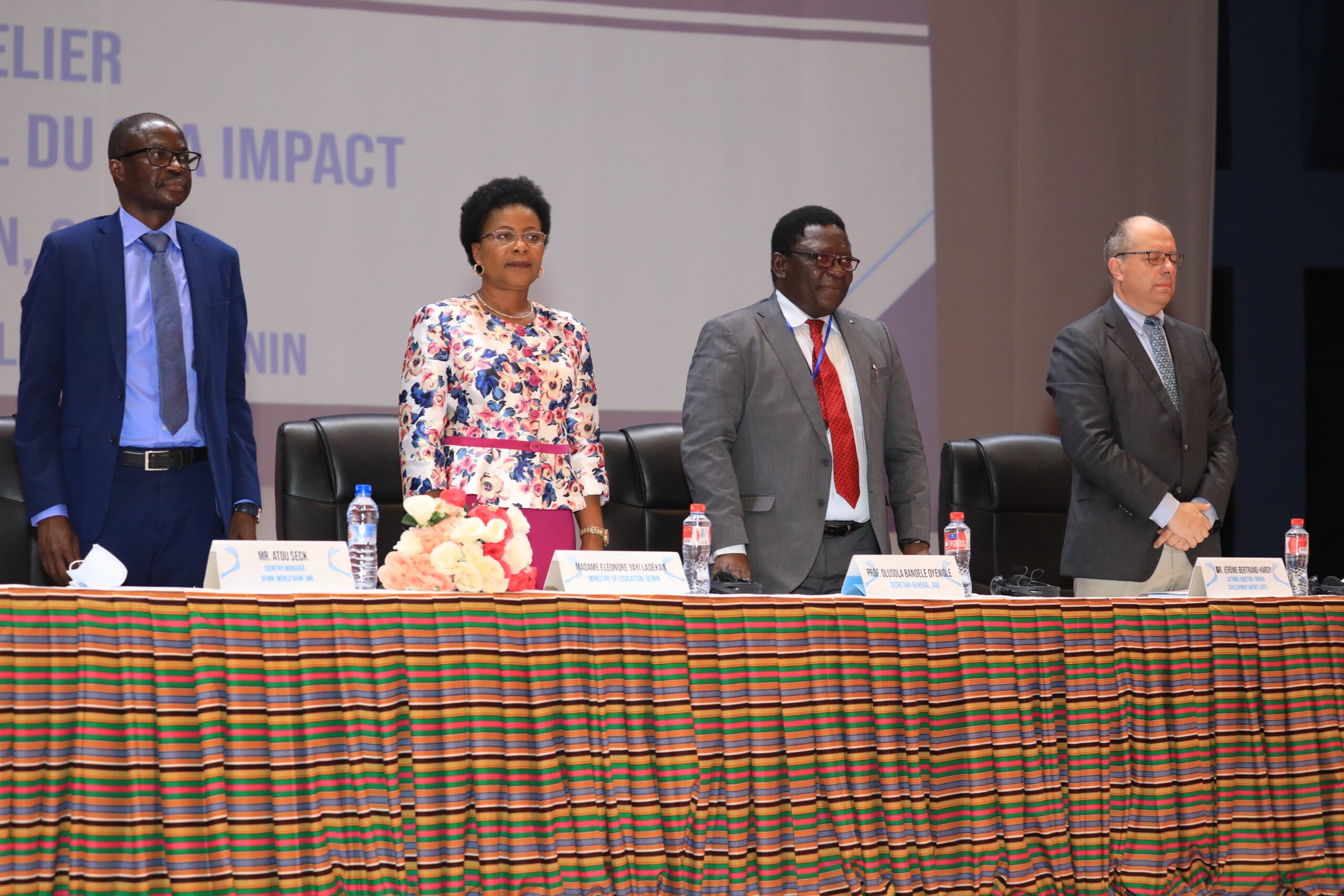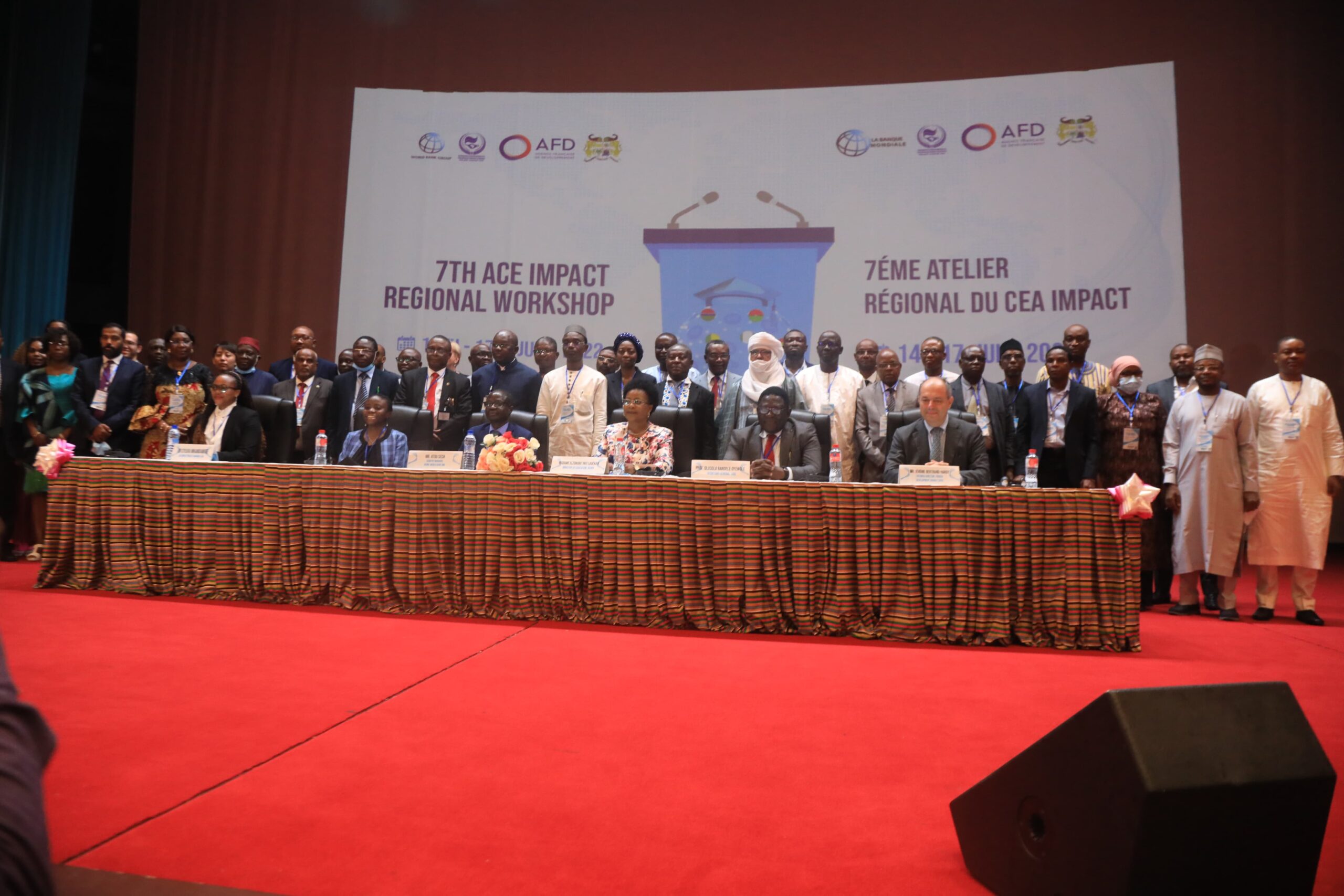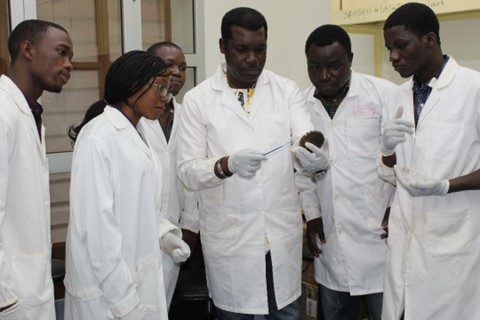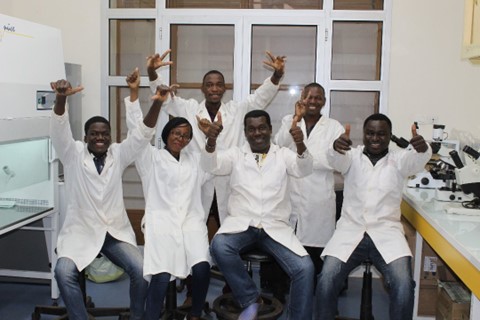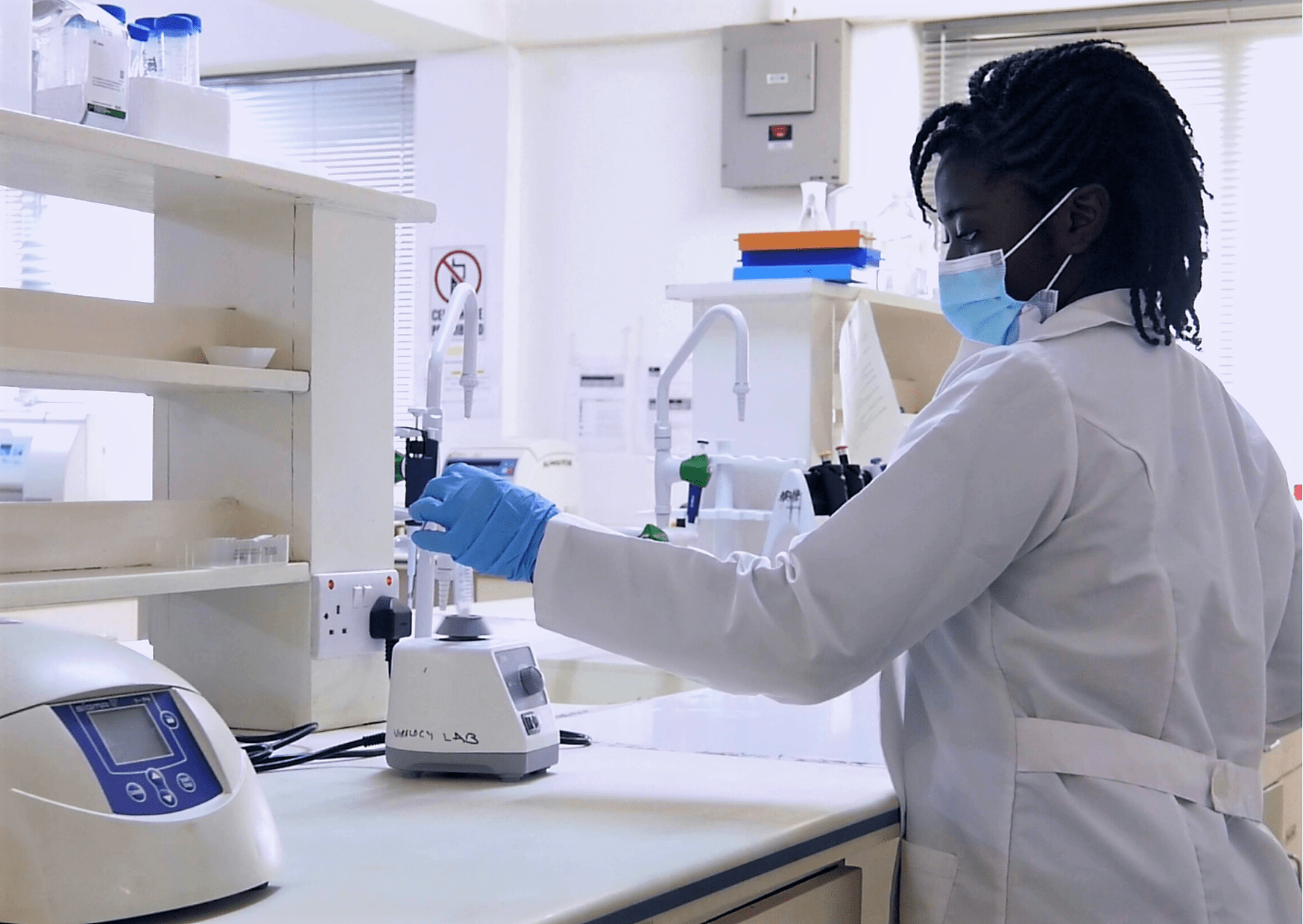Strong M&E helps track DLIs
Strong Monitoring, Evaluation & Learning Systems and Processes Helps Track the Status of the ACE Impact Project’s Implementation & Achievement of Disbursement-Linked Indicators (DLIs)
To promote greater transparency, data-driven decision making, improved project performance and learning, as well as effective resource allocation among several other reasons, ACE Impact places a high premium on Monitoring, Evaluation and Learning (MEL). The project’s MEL Specialist, Mrs. Adeline Addy presented the status of implementation and achievement of the Disbursement Linked Indicators at the ongoing 7th ACE Impact Regional Workshop, in Cotonou, Benin. As a results-oriented project, the Disbursement Linked Indicators are project requirements that centres must attain before receiving funds.
The 53 Centres of excellence are divided into two groups, 1st ACE Impact and 2nd ACE Impact centres, depending on when their projects were approved for implementation. Centres from Burkina Faso, Djibouti, Ghana, Guinea, and Senegal are in the 1st ACE Impact group while Centres from Benin, Gambia, Niger, Nigeria, Togo and Cote d’Ivoire are in the 2nd ACE Impact group.
Process-wise, the results achieved by centres from both groups are initially submitted to the AAU as the Regional Facilitating Unit through an online digital reporting system. After this, an external verification agency is appointed to verify the results. Verified results lead to the Centres receiving funds for the results achieved.
The presentation by the Project’s MEL Specialist focused on the status of the project development objectives (PDO) for both the 1st and 2nd ACE Impact Centres, as well as for the overall project. She also shared the country-level status per DLI and provided an overview of the highlights and challenges. The presentation concluded by sharing the schedule for results reporting and verification.
The highlights were that the 1st ACE Impact Centres had achieved 51% of the DLIs, with three (3) out of five (5) PDO indicators on target including student enrollment, programme accreditation and student and faculty internships. Strong performance had also been recorded under PhD training (74%); External Revenue Generation (74%), Masters level training (73%); and Research Publications (72%). The areas of concern with the 1st ACE Impact Centres were the generally low achievement rates under Overall Fiduciary (20%), Programme Accreditation (19%), Infrastructure (16%) and Overall Institutional Impact (8%) – however some Centres individually did well in these areas of concern.
The presentation pointed out that the 2nd ACE Impact Centres had achieved 32% of the DLIs. Noteworthy performance was also highlighted under Masters enrolment and training (56%), Short Courses (55%), PhD (54%), Research Publications (53%) and External Revenue (44%). The areas of concern with 2nd ACE Impact Centres were the overall low achievements on Fiduciary (13%) and Institutional Impact (0.3%). However, some Centres individually did well in the indicated areas of concern. Apparent lack of progress was noted under DLR 4.1 (Number of internationally, regionally/sub-regionally accredited education programs), DLR 4.3 (Improved teaching and research environment as per approved proposal) and DLR 5.3 (Number of new entrepreneurships, innovation, start-up companies, and commercialization support programs). Worth noting is the fact that some of the processes towards achieving some of these DLRs, for instance DLR 4.1 related to accreditation takes quite some time, and the centres were working hard to achieve the expected results. Centers were also encouraged to step up their efforts in some of these areas.
Mrs. Addy also indicated that the Results Verification Schedule for June 2022 to August 2022 includes the following key milestones:
- Completion of results submissions by 30 June 2022
- Verification of results from 1 to 30 July 2022
- Finalization of results 1 to 10 August 2022
- Issuing of verification notices/letters by the RFU, the Association of African Universities by 15 August 2022
Project Performance & Disbursement – Ms. Maud Kouadio-IV
Ms. Maud Kouadio-IV, the Education Consultant and ACE core team member with the World Bank reported that most of the 1st ACE Impact Centres had exceeded their project average for DLI achievements and most of the 2nd ACE Impact Centres had also exceeded their project average. It was reported that the performance of some of the Centres had been negatively affected by delays at a national level in approving the projects, the COVID-19 pandemic, and coup d’etats in some countries.
For the 1st Group of ACE Impact Centres, as at end of May 2022, the total International Development Association (IDA) funds received project wise was 40% – with Ghana Centres topping in terms of IDA funds that they have received to date – 51%. For the 2nd Group of ACE Impact Centres, as at end of May 2022, the total IDA funds received project wise was 22% – with Benin Centres topping in terms of IDA funds that they have received to date – 27%.
The International Development Association (IDA) is the portion of the World Bank that aids the world’s neediest countries. Created in 1960, IDA aims to reduce poverty by providing zero to low-interest loans (called “credits”) and grants for programs that increase economic growth, reduce inequalities, and advance people’s living conditions.
Ms. Kouadio-IV stated that the first Group of ACE Impact Centres had completed their mid-term review (MTR) process, whilst the 2nd group were scheduled to conclude theirs in November 2022.
The project-wide recommendations include project extension to June 2025 because of COVID-19 related implementation delays, and procurement delays beyond the control of the centers. Ms. Kouadio-IV noted that there were disruptions to the academic calendar, regional student enrollment, internships, and staff mobility. She advised that discussions needed start at national level to prepare and submit official requests for extension to the Bank.
On project fund reallocations, she said that these would follow agreed criteria to ensure optimum use of project funds. The criteria for fund reallocations would include merit, the Centers’ needs, planned activities, expected results, and case-by-case reallocation.
It was mentioned that some disbursement-linked indicators (DLIs) would change, and these include DLI2 (Development Impact of ACE Center), DLI6.4 (Quality of Procurement planning) and DLI7.4 (ACE host university participate in PASET ). The changes are meant to reflect the challenges that have arisen in the project and to ensure that centers still have the chance to earn 100% of project funds in the remaining project time.
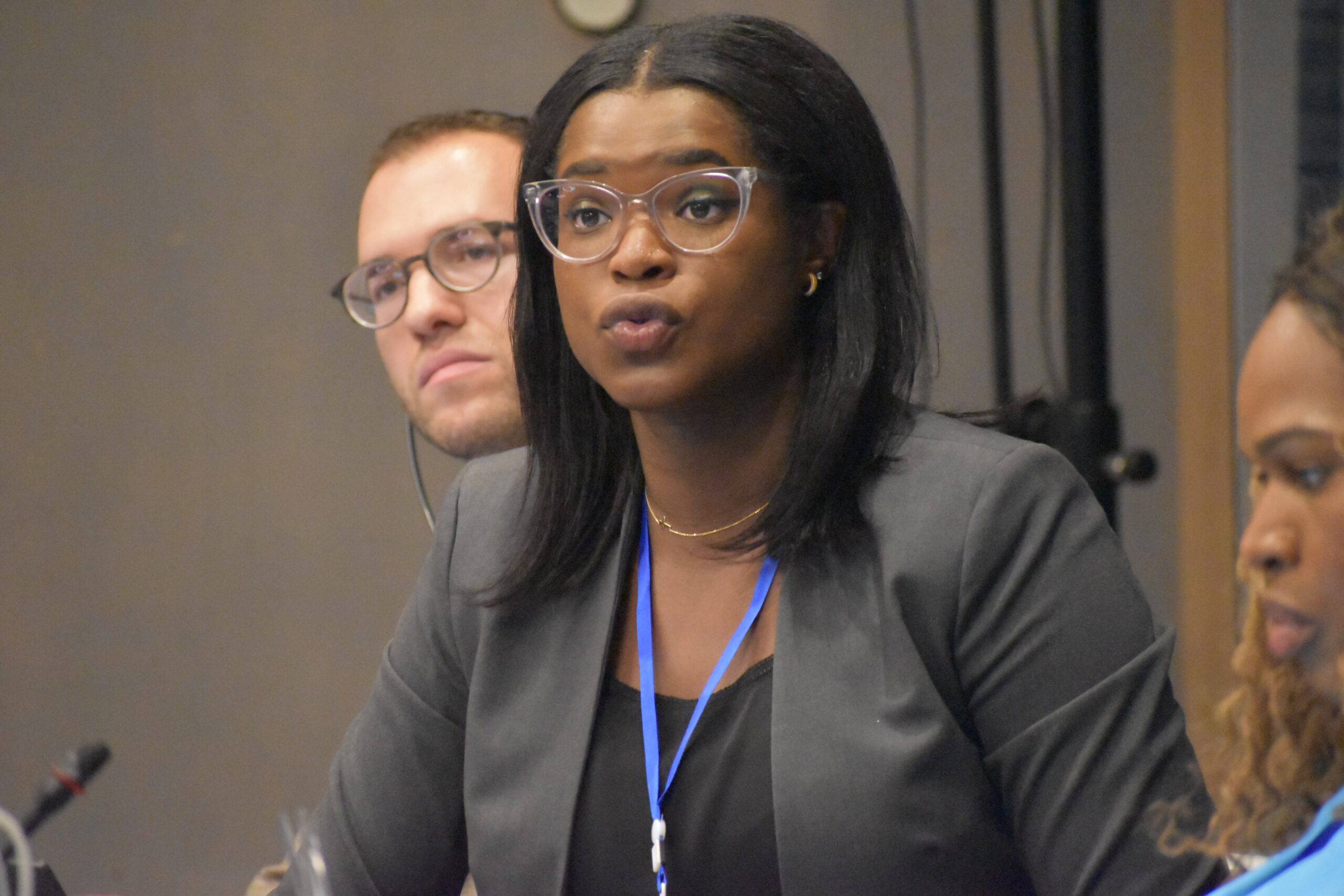
Ms. Kouadio-IV said that the parameters for the additional financing for Centres would consider the DLI achievement rate, fund utilization rate, implementation performance rate and qualitative assessment of the Centres.
Wrapping up, the Centres were advised to accelerate the implementation of their project “as if there would be no project extension”, since this was not currently assured. The RFU and the Subject Matter Experts have been assisting the Centres to develop and implement accelerated implementation plans aimed at guiding the Centres to fully deliver the expected results.
Written By: Ms Nodumo Dhlamini, Director ICT Services, Communications and Knowledge Management at AAU
Reviewed By: Mrs Adeline Addy, MEL Officer at AAU and Mrs Felicia Kuagbedzi, Senior Communications & Publications Officer at AAU
